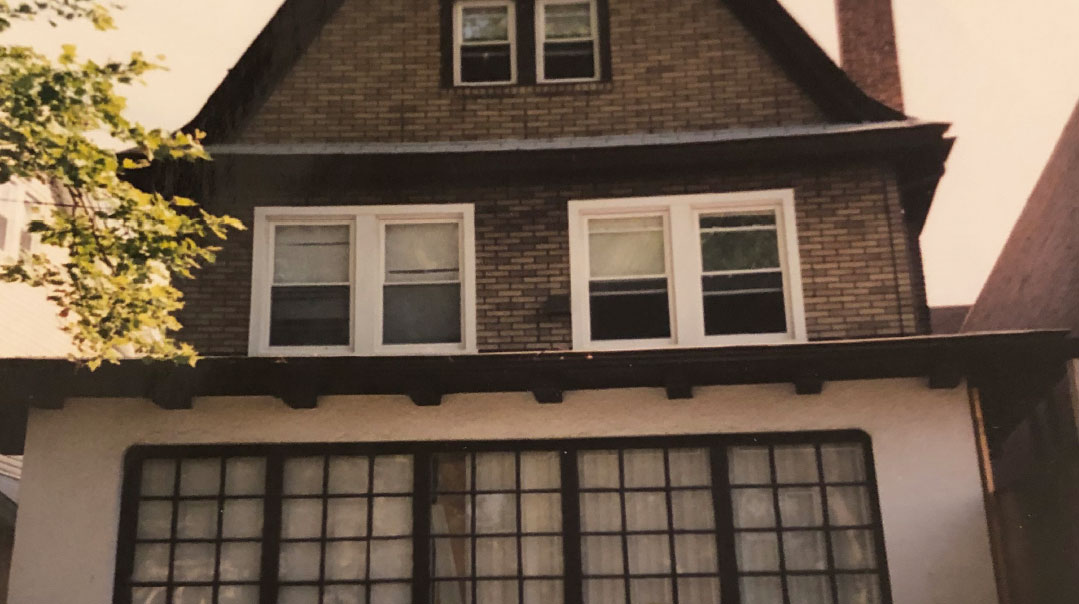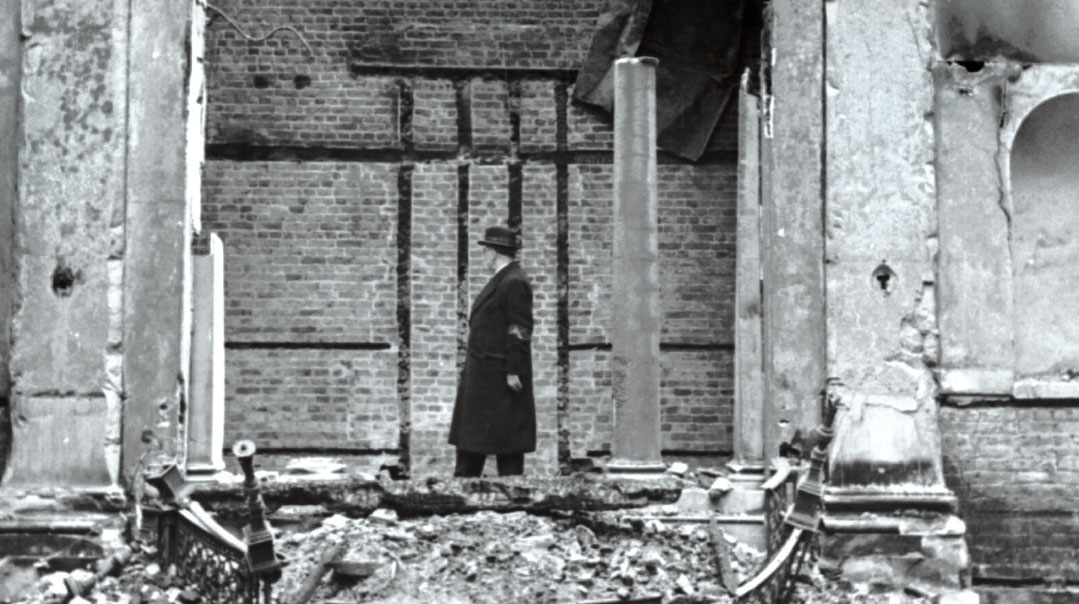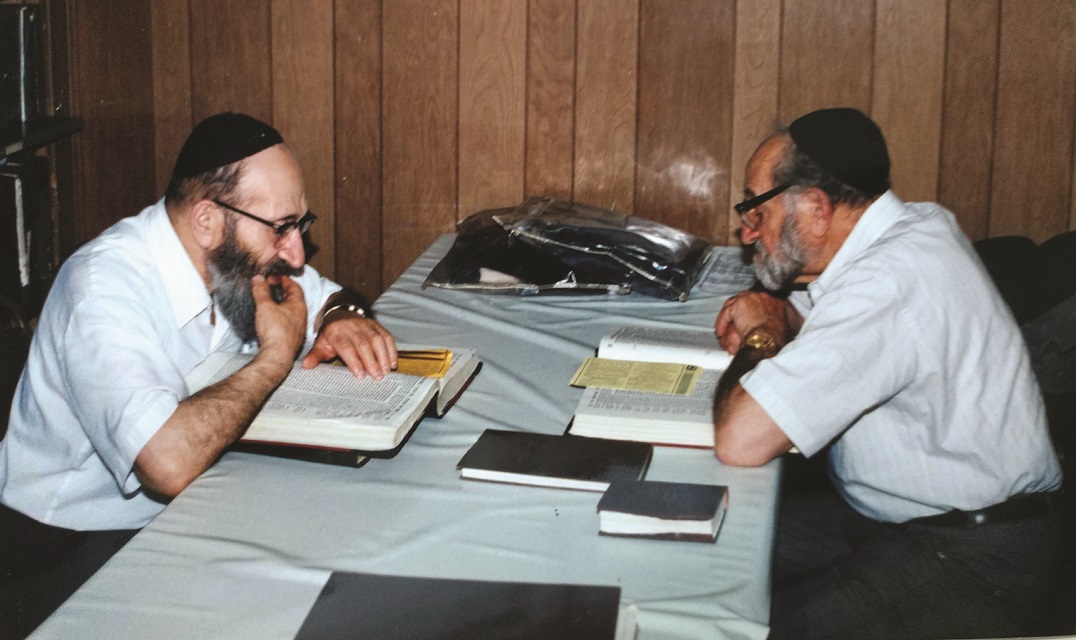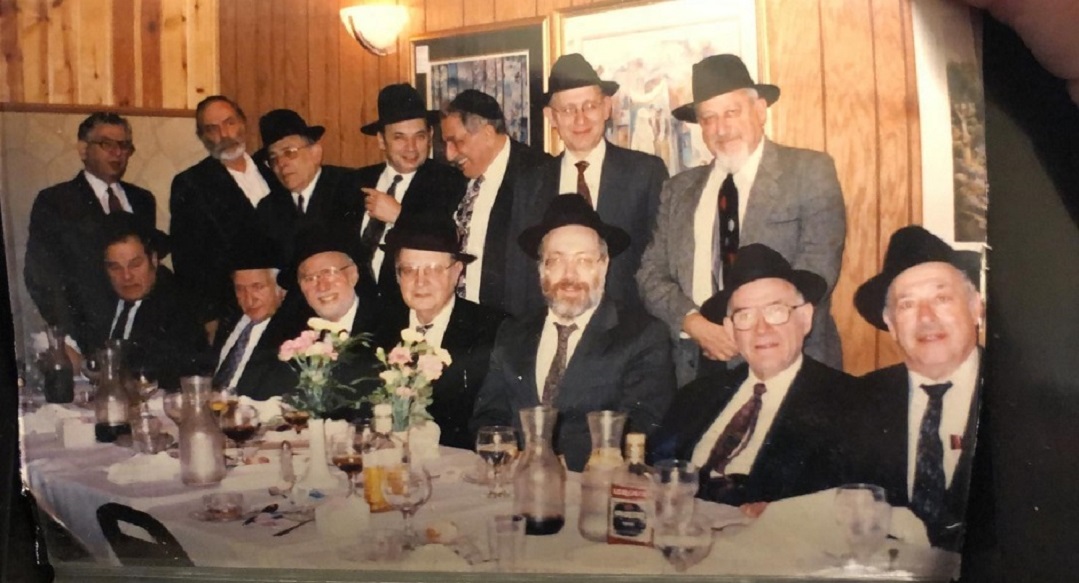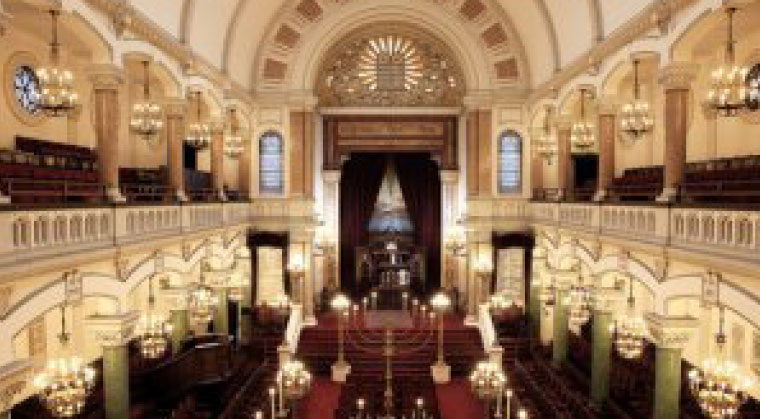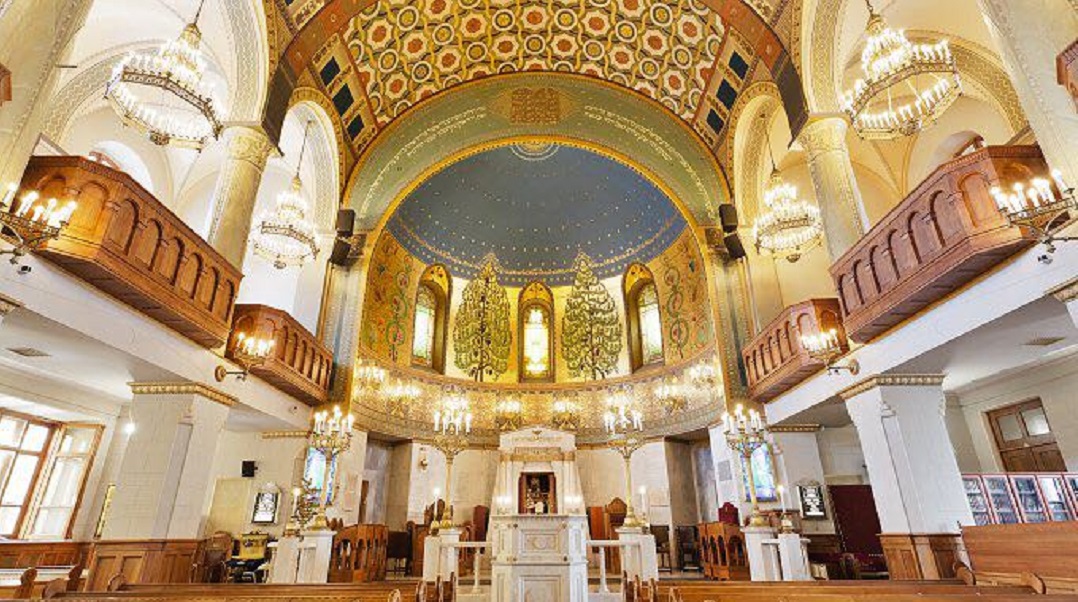The Mishpachah Shul
| August 14, 2019Rebbetzin Esther Jungreis’s daughter remembers the shul of her youth
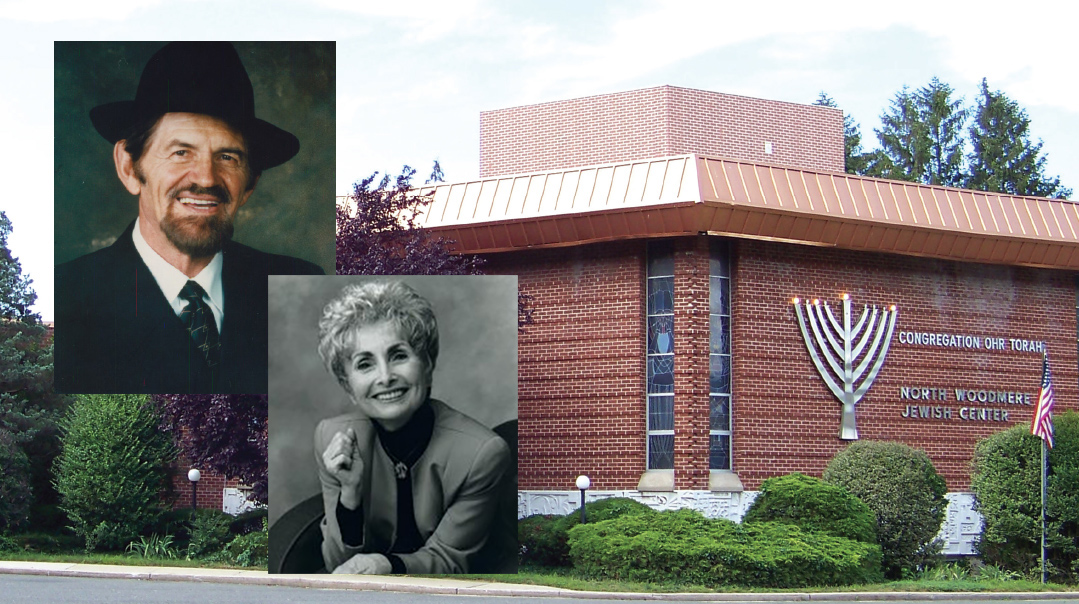
“Mazel tov! Your married children bought a home. How nice, where did they buy?”
“North Woodmere — you know, in the Five Towns.”
“Of course I know… I grew up in North Woodmere. And today, so many of my friends’ children are moving to North Woodmere.”
Memories….
Fifty-seven years ago, my beloved parents Rabbi Meshulem and Rebbetzin Esther Jungreis zichronam livrachah moved to North Woodmere. Their hearts and souls were filled with the dreams and aspirations of creating an Orthodox community in an area that — although just minutes from the vibrant Yiddishkeit of New York City — was spiritually barren. Although neither of them is physically with us — my father was niftar in 1996, and my mother’s third yahrtzeit is this August 20 (19 Av) — the legacy they bequeathed us is still going strong.
In 1963 Congregation Ohr Torah was born. Ohr Torah — a shul that would bring the light of Torah and the warmth of Yiddishkeit to so many families. How proud I was to be “the Rabbi’s daughter,” and how I loved my father’s shul.
At the time, North Woodmere was still a developing community. It was a midbar, a desert, both spiritually and physically. There were mounds of sand on many streets as the neighborhood was just beginning to take shape.
Families were building homes, fulfilling the American dream of living in suburbia, having a spacious home, a backyard, maybe even a pool, and the promise of a “better life” for their children.
Although there were a few traditional families, for many, Torah and mitzvos were the last things on their mind.
My parents settled in a hi-ranch-style home, and an identical house next door was converted into a shul. The lower level became the beis haknesses, the living and dining room area was our “Kiddush room,” and the bedrooms served a dual purpose — Hebrew school classrooms during the weekdays, and the Junior Congregation on Shabbos. As kiruv was a “family activity,” I was given the job of leading the Junior Congregation.
Like Avraham Avinu and Sarah Imeinu before them, my abba and ima rolled up their sleeves and reached out to the community, inviting the fathers, mothers, boys, and girls into their shul, into their home, into their Torah way of life. My father taught the men and my mother taught the women. My grandmother, whom everyone called “Mama,” would cheerfully come from Brooklyn to babysit us while Ima was giving classes. Mama was also an amazing baker, and my mother would distribute packages of her Hungarian delicacies to the shul members.
Led by their beloved Rabbi and Rebbetzin, Ohr Torah became a huge success, but more notably it became a “mishpachah shul.” One family, growing together, rejoicing in each other’s simchahs, and being there for each other in times of need.
I remember the beautiful Shabbos davening. The melodies are still with me. “Vayehi binsoa ha’aron…” “Eitz chayim hee…” And, of course, Kedushah. I will never forget my father’s Rosh Chodesh bentshen and singing “Chaveirim kol Yisrael” in a most joyous tune. And, as davening was concluding, everyone in shul joined in singing Anim Zemiros, and all the young boys would go to the bimah to sing Adon Olam. To this day, as I daven, the tunes of yesteryear play in my mind. I sing the words to myself, I daven with the melodies I grew up with, the melodies of my father’s shul.
Every Shabbos, there was a kiddush. Not the contemporary catered type with fancy tablecloths and centerpieces, waiters and hot dishes, but it was a kiddush nonetheless. It was prepared by the ladies of the Sisterhood. A pareve cold kiddush consisting of fruits, sugar-coated bowtie kichels, rugelach, and trays of cake — honey, marble, and sponge. There were challah rolls, tuna and egg salad, herring in wine sauce and cream sauce (with those frilly toothpicks), jarred gefilte fish, and Tam Tams. The kiddush food may have been cold, but the atmosphere in the room was warm. People would linger, no one wanted to leave.
My father would always make a point of going to the kitchen to thank the ladies for setting up. He gave each one a brachah, and how they cherished the Rabbi’s blessing. No one would take any food until the Rabbi made Kiddush, and then you could hear the entire congregation answer Amen in unison.
Baruch Hashem, with time the shul grew. When Rosh Hashanah and Yom Kippur came along, the house just wasn’t large enough. Some members suggested renting a tent and placing it in the backyard. I remember one Kol Nidrei night the winds were blowing, and so was our tent. The “strong big guys” were drafted to hold on to the poles to keep the tent steady.
On Rosh Hashanah, my father would stand at the doorway wishing all a shanah tovah. Magically, he was able to recall who may have been missing. Abba would then proceed to “make the rounds,” going from house to house blowing shofar for all those who were unable to be in shul.
After my abba’s petirah, we received a letter from the daughter of a congregant. Although she was away at college, she wanted us to know that she remained connected to Judaism “because of a Rabbi who took time out to blow shofar for a young girl who was home with pneumonia on Rosh Hashanah.”
Across the street from the shul was a gated lake. My father was entrusted with the keys by the village leaders. He would open the gates to enable the entire community to say Tashlich together.
Succos was also special. We had an old-style wooden succah in the backyard, built by shul volunteers and, under my mother’s guidance, beautifully decorated with crepe-paper streamers and colorful hand-drawn pictures by the members’ children.
My birthday is on Succos, and — like every other occasion in our lives — it served as a perfect kiruv opportunity. My parents would order at least a hundred — if not more — jelly apples, enticing the children to enter the succah and make a brachah.
The early years came with challenges. That there was a daily minyan was only due to the efforts of a loving Rabbi. Needing to supplement the handful of adults who could be counted upon to be at minyan, my father would pick up a group of boys, drive them to shul, and after davening drop them off at their public school. During the winter months, Abba would prepare thermoses of hot cocoa for his “Minyanaires.” That loving kindness of the Rabbi paid off, and today, these boys are shomrei Torah u’mitzvos.
My parents always opened their home to the youth of Ohr Torah. We always had a full table on Shabbosim and Yamim Tovim.
After just a few years, Ohr Torah outgrew the house. Land was purchased, a building campaign was undertaken, and a beautiful edifice was constructed, which still stands proudly. Although the shul was now in a “big building,” it still retained its small-town homey and warm atmosphere. Upon Abba’s first yahrtzeit, the street was renamed by the village as “Rabbi Jungreis Way.”
In closing, I want to share with you a beautiful story that will always remain close to my heart. Sharon, a young college student, who was part of the Ohr Torah family, came to the Rabbi and Rebbetzin concerned about her ailing grandmother. The doctors did not give her much time to live, and Sharon’s mother was taking care of her at home. It was Pesach time, and my mother, the Rebbetzin, suggested that Sharon count Sefirah with her grandmother.
And so, the count began. Sharon and her grandmother never missed a day. One week became seven, and the doctors were proven wrong. On Shavuos, my father took one of the shul’s sifrei Torah, and wrapped it lovingly in a tallis. Together with my mother and the children of the Junior Congregation, they marched with the Torah down Hungry Harbor Road to Sharon’s grandmother. Mustering up all of her strength, the frail and critically ill woman pronounced “naaseh v’nishma.” The next day, Sharon’s grandmother returned her neshamah to Shamayim, taking along the final mitzvah of counting Sefirah and proclaiming naaseh v’nishma.
Today, North Woodmere is a growing and thriving community. I am so proud that the seeds were planted almost six decades ago, seeds planted with love by my abba and ima, Rabbi Meshulem and Rebbetzin Esther Jungreis, zechusam yagen aleinu.
(Originally featured in Mishpacha, Issue 773)
Oops! We could not locate your form.






